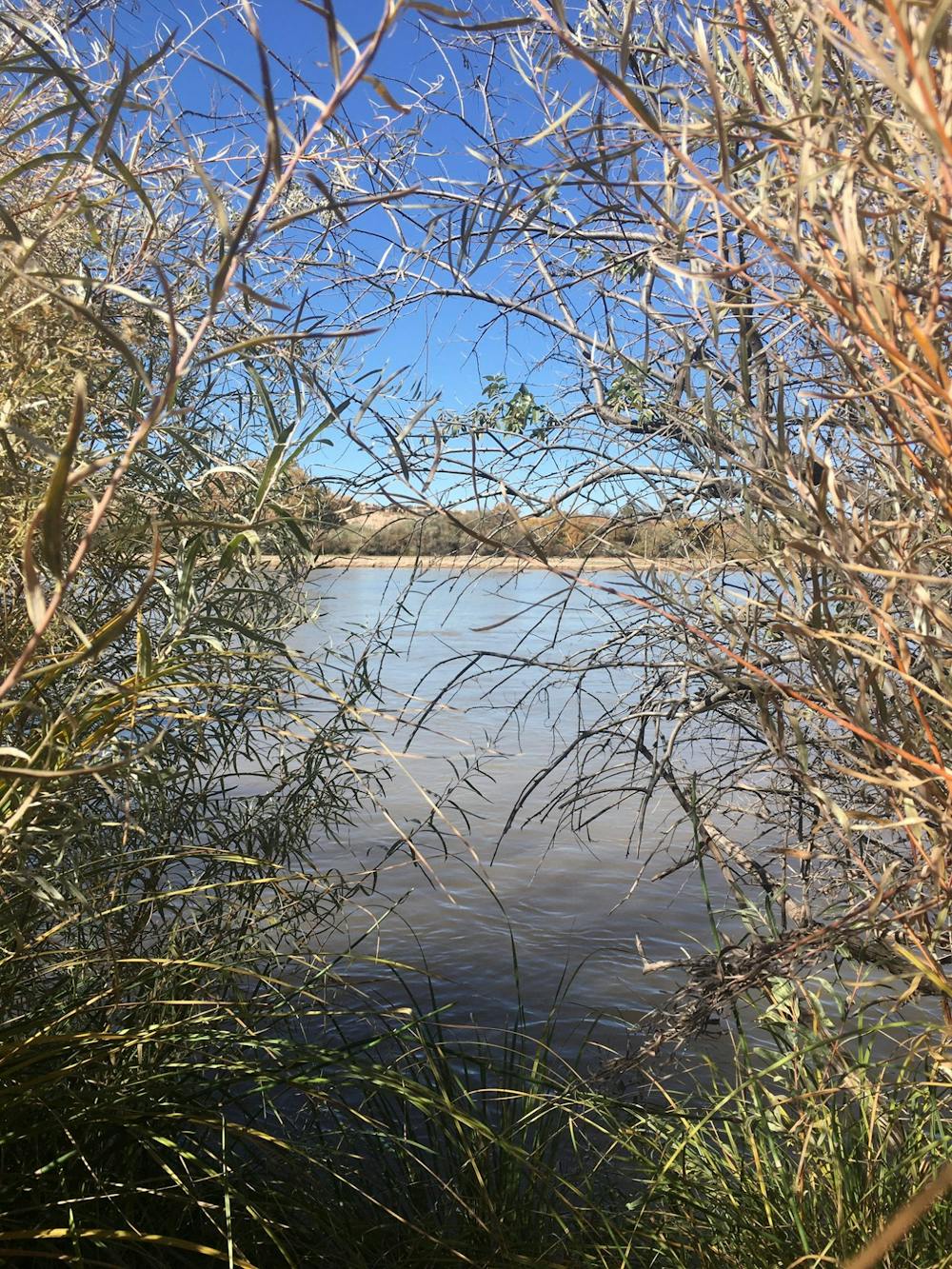Over the last century, human development and water diversion from the Rio Grande bosque to the Albuquerque community has greatly changed and diminished its natural ecosystem. Historically, the bosque has been a vast riparian forest of cottonwoods and wetlands — an oasis in the arid climate of New Mexico.
The ecosystem was in a constant state of flux, and riverbanks could shift or separate within a single season. Periodic flooding reshaped and reinvigorated the environment, creating a dynamic and unique habitat for the plants and animals that called it home, according to National Geographic.
The bosque used to stretch as far up as Old Town in Albuquerque, but human development in the river valley during the 20th century thinned the ecosystem. Water diversion projects in the post-war period, like the Cochiti and Abiquiú dams, further decimated the bosque’s vitality, the National Geographic article continued.
According to a Bosque Education Guide, the regulation of water flow in the river has not only impacted the organisms that depend on it, but has also changed the variation of vegetation types present in the area.
Phil Tubbiolo, a University of New Mexico alumnus who has lived in Albuquerque for 30 years, walks along the Rio Grande every day with his dogs. He said he doesn’t see many people walking by the river, and the paths are particularly sparse during the winter.
"There’s nothing like this, even in places like Boise and Missoula and places like that," Tubbiola said, adding that "It’s pretty extraordinary."
Tubbiolo said he remembered the water levels being much higher 25 years ago when compared to how high they are today. In the past decade, he said he has seen less crows, geese and other wildlife along the Rio Grande.
"I come from Maine, where there’s a lot of deep, wide rivers. Sometimes it feels kind of sad to look at this river, how low it is," Tubbiolo said.
There are currently four species listed under the Endangered Species Act along the Rio Grande in New Mexico, according to the New Mexico Interstate Stream Commission. The Southwestern willow flycatcher, Rio Grande silvery minnow and New Mexico meadow jumping mouse are listed as endangered, while the Western Yellow-Billed Cuckoo is threatened.
According to the Office of the State Engineer, these species’ statuses must be taken into consideration for current and future planning along the Rio Grande.
A controversial housing development on the westside of Albuquerque would bring 76 homes on 23 acres of land above Oxbow Wetlands, adjacent to the open space next to the Rio Grande.
According to an article in the Albuquerque Journal, the Albuquerque City Council decided to return the overlook at the Oxbow Project to the Environment Planning Commision (EPC) rather than grant or reject two appeals laid out in March after the EPC approved the development plan.
Get content from The Daily Lobo delivered to your inbox
Although the Albuquerque Planning Department determined the site had proper zoning and the EPC approved the Overlook plan with certain conditions, neighbors and those who appealed the project argue it violates the Integrated Development Ordinance and posed a risk to the bosque ecosystem, according to the Journal report.
Al Midaval and his wife Joan recently moved to Albuquerque from Dallas, but his family has old roots in the city. He thinks the development project would further damage the ecosystem of the Rio Grande.
"We’ve been fighting the Poole estate over here," said Midaval. "We’ve been battling the developers — they wanted to put seventy housing units over there."
Midaval said New Mexico is unique in its appreciation of open space. He and his wife relocated here, in part, for the clean air and wildlife of New Mexico.
"What I’m really impressed with about Albuquerque and this state is they really have an appreciation of the open space, and I realize that that’s a struggle. It’s one of the things that makes New Mexico so enchanting," said Midaval.
Amanda Britt is the photo editor at the Daily Lobo. She can be contacted at photo@dailylobo.com or on Twitter @AmandaBritt__
Alex Hiett is a beat reporter at the Daily Lobo. He can be contacted at news@dailylobo.com or on Twitter @Nmal1123






